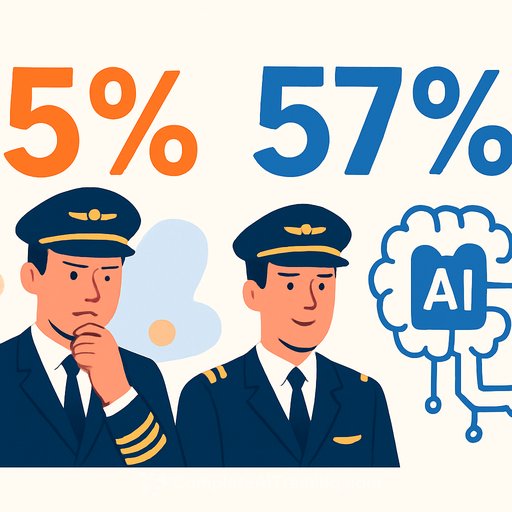AI Strategy and the Global Leadership Debate: Key Takeaways for Executives
Recent discussions among AI experts have highlighted a sharp divide on how the United States should approach artificial intelligence, especially in relation to geopolitical competition with China. The White House's newly released AI action plan has sparked debate about risks, values, accountability, and the broader implications of AI leadership.
The U.S.-China AI Competition: A Question of Strategy
Adam Thierer, Senior Fellow at the R Street Institute, views the administration’s 28-page federal AI plan as a pivotal shift. He argues that the U.S. has moved away from heavy-handed regulations toward recognizing an international race against China for AI dominance. According to Thierer, this race is not just about technology but also about which country’s values and systems shape global AI standards.
In contrast, Yonathan Arbel, Rose Professor of Law at the University of Alabama, warns against framing AI development as a race. He questions what "winning" actually means and cautions that this mindset might prioritize victory over responsible governance. For executives, this raises the question: should AI strategy focus solely on competition, or balance innovation with ethical considerations?
State Laws vs. Federal Coordination
With over 1,000 AI-related bills pending across states like California, Colorado, New York, and Illinois, the lack of federal coordination poses challenges. Sarah Oh Lam from the Technology Policy Institute emphasizes the risk of a fragmented regulatory environment slowing down innovation. She views the federal AI plan as forward-looking, aiming to provide a cohesive framework that prevents inconsistent rules from hampering progress.
However, concerns around public safety and unchecked AI deployment remain strong. Pepperdine’s Chris Chambers Goodman highlights issues such as algorithmic bias and workplace surveillance, pointing to the need for safeguards. Executives managing AI initiatives should be aware that balancing innovation with responsible use will be critical amid varying state regulations.
All panelists agreed that Congress has yet to pass a comprehensive federal privacy law, a hurdle that could delay unified AI policy. This ongoing gridlock suggests that state-level regulations will continue to influence the AI landscape for the foreseeable future.
Liability and Accountability: Who Is Responsible When AI Fails?
In the absence of clear legislation, liability for AI errors is expected to be settled in courts. Sarah Oh Lam points out that humans remain accountable for decisions made using AI tools, whether in healthcare, hiring, or other professional contexts. This implies that executives must maintain oversight over AI applications and understand the legal risks involved.
Yet, Arbel notes that as AI systems become more autonomous, assigning responsibility becomes complicated. When AI causes harm—like discrimination—it's unclear which human or entity should be held liable. This ambiguity highlights the need for future legal frameworks that clarify accountability, a critical concern for corporate leaders deploying AI technologies.
What Executives Should Keep in Mind
- The U.S. AI strategy is evolving toward competing with China, but it’s essential to consider long-term values and ethical implications, not just technological supremacy.
- Fragmented state regulations present risks for innovation and deployment speed; advocating for clear federal guidelines may benefit strategic planning.
- Public concern over AI safety and bias is increasing, so integrating responsible AI practices is crucial for maintaining trust and compliance.
- Liability for AI-driven decisions remains a gray area; organizations must implement robust oversight and risk management strategies.
For executives seeking to deepen their understanding of AI strategy and governance, exploring specialized courses can provide practical insights. Resources like Complete AI Training’s latest AI courses offer focused learning on AI tools, ethics, and policy impacts relevant to leadership roles.
Your membership also unlocks:






